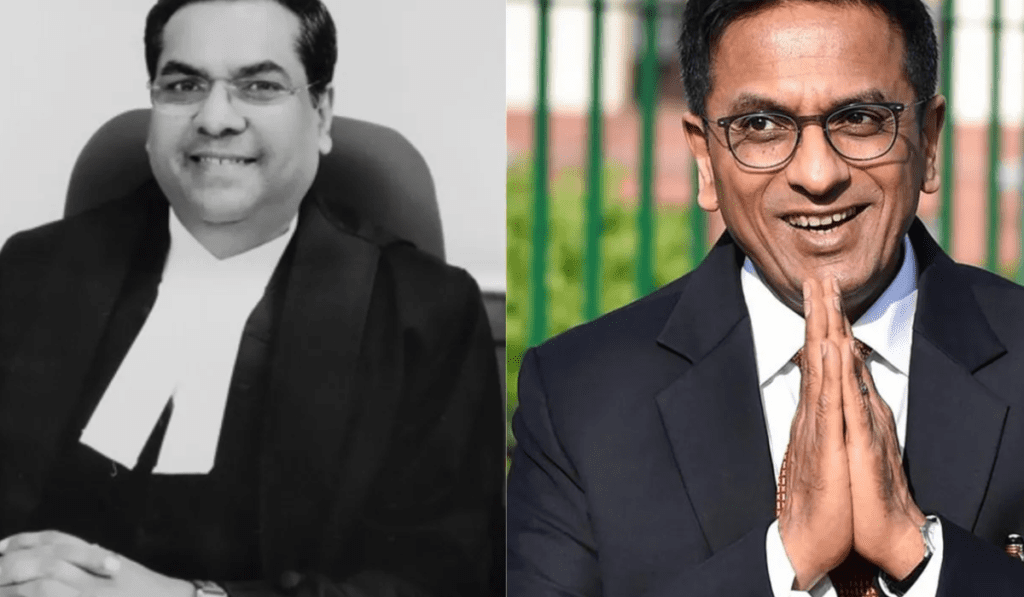On Wednesday, Chief Justice of India D.Y. Chandrachud initiated the process of appointing his successor by recommending Justice Sanjiv Khanna, the Supreme Court’s senior-most judge, to the Union government.
Justice Khanna, who is next in line for the role based on seniority, will be eligible to assume the position of CJI upon justice Chandrachud’s retirement on November 10. Justice Khanna is expected to serve until his retirement on May 13, 2025, a tenure of about six months as CJI.
According to people aware of the matter, CJI Chandrachud handed over a copy of the letter to justice Khanna on Wednesday morning.
On October 12, the central government sent a letter to CJI Chandrachud, requesting him to name his successor. Justice Chandrachud took over as the CJI on November 9, 2022.
As a matter of convention, the law ministry writes to the CJI a little over a month before the latter’s retirement, seeking the name of his successor. The incumbent then writes back, sending the recommendation to the ministry.
According to the memorandum of procedure (MoP) which governs the process of appointment and transfer of judges in the constitutional courts, appointment to the office of the CJI should be of the most senior judge of the Supreme Court, considered fit to hold the office.
After the recommendation of the incumbent, the government is expected to soon issue a notification appointing justice Khanna as the next CJI with effect from November 11.
Distinguished career of Justice Sanjiv Khanna
Justice Khanna has a distinguished legal career, marked by a wealth of experience and significant contributions to India’s judicial landscape. He began his legal journey by enrolling with the Bar Council of Delhi in 1983, practising initially at the Tis Hazari district courts before moving on to the Delhi high court.
Justice Khanna developed a robust practice in various areas, including constitutional law, arbitration, commercial law, company law and criminal law. His roles included serving as senior standing counsel for the Income Tax department and as standing counsel (civil) for the National Capital Territory of Delhi. His expertise also extended to criminal law, where he argued numerous cases as an additional public prosecutor and often served as an amicus curiae to assist the Delhi high court in a raft of important matters.
Justice Khanna was elevated as an additional judge of the Delhi high court in 2005, and by 2006, he became a permanent judge. During his tenure, he also contributed to the Delhi Judicial Academy, Delhi International Arbitration Centre and District Court Mediation Centres.
Justice Khanna’s career trajectory is unique in that he did not serve as the chief justice of any high court before his appointment as a judge in the Supreme Court in January 2019.











More Stories
Norway Chess: नॉर्वे शतरंज टूर्नामेंट में विश्व चैंपियन गुकेश ने कार्लसन को हराया, पिछली हार का भी लिया बदला
Bengaluru Couple Bows to Auto Driver After Viral Incident
Ishaan Khatter makes fans scream as he pulls off butter smooth dance moves at Miss World 2025: Watch